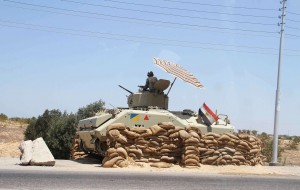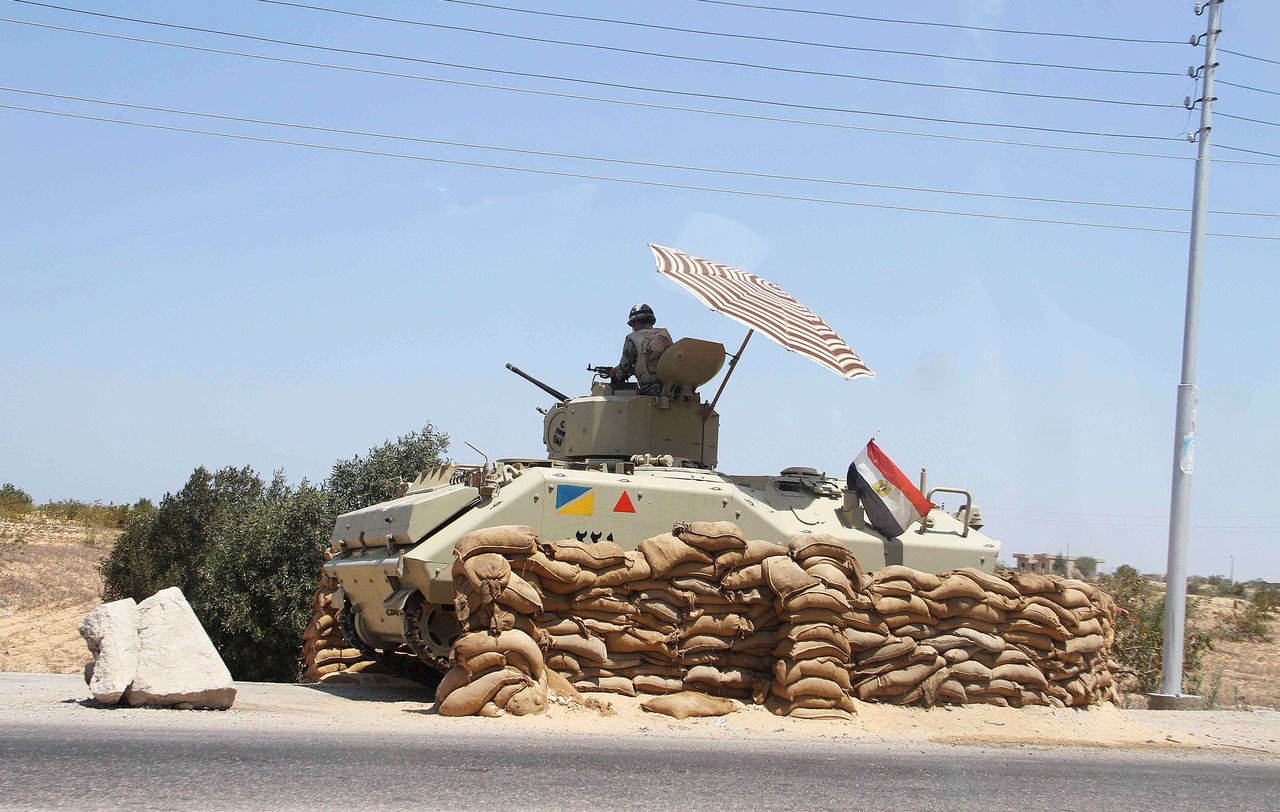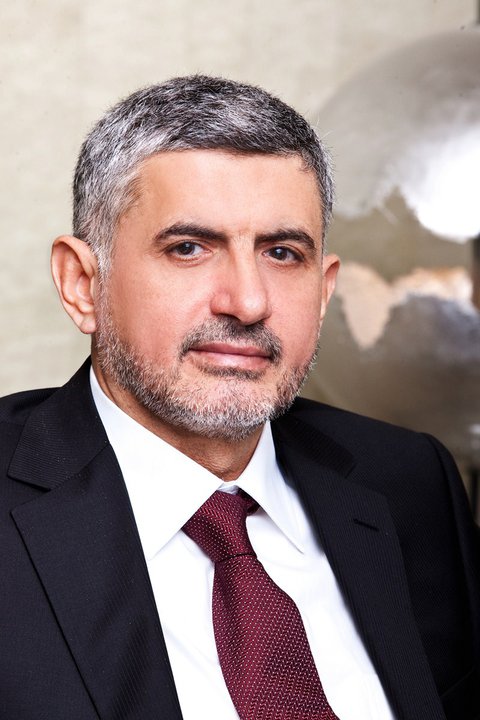
AFP PHOTO/AHMED MAHMOUD
The terrorist attacks on an army checkpoint near the Rafah border Sunday night which left 16 Egyptian soldiers killed and 7 injured have raised questions about their repercussions on the Gaza blockade.
“The attacks will have a relative effect on the Gaza blockade,” said Abdel Aleem Mohamed, an analyst at the Ahram Centre for Political and Strategic Studies.
The Rafah border-crossing connecting Egypt to Gaza was closed indefinitely on Sunday in response to the latest attacks.
Following the attacks on Monday, state-owned Al-Ahram reported the decline in the number of Palestinians arriving at Cairo International Airport, as well as cases of several Palestinians who were sent back upon arrival in Cairo due to the close-down of the Rafah border-crossing.
Only last week, following his meeting with President Mohamed Morsy, Hamas Prime Minister Ismail Haniyeh announced that he had come to an agreement with Morsy to keep the Rafah border crossing that connects Gaza with Sinai open for 12 hours a day from 9 am to 9 pm, a 4-hour increase from the previous policy. The number of Palestinians who were permitted to cross the border, according to the new agreement announced by Haniyeh, was to rise to 1,500 a day.
Shortly after the attacks, Israel announced that it closed the Kerem-Shalom border-crossing, citing the Sinai attack. Israeli media furthermore added that three were killed upon trying to infiltrate the border-crossing after the attack.
“Sunday’s attacks mainly targeted the Kerem-Shalom border-crossing,” said Mohamed Goma’a, expert on Palestinian affairs in the Ahram Centre for Political and Strategic Studies. “Kerem-Shalom was the sole remaining border-crossing open between Israel and Gaza,” Goma’a confirmed. “All other border-crossings had been previously closed.”
Earlier in June, Qatar sent 30 million litres of fuel to the Gaza strip, passing through Egypt. The different installments of the fuel travelled through the Al-Awja border crossing in north Sinai, moving forward through Israeli-controlled Kerem Shalom crossing to reach Gaza.
Israel allowed the fuel to be transferred through its territory to Gaza, following a request made by Egypt.
“It’s common sense that the Qatari oil would no longer be transferred to Gaza, since the Kerem Shalom border-crossing is now closed.” Goma’a said.
Gaza is relying on the shipments to try to overcome ongoing power cuts. Fuel shortages at the primary power plant in Gaza have resulted in power cuts stretching to as many as eight hours a day.
The fuel crisis in Gaza peaked in February, following the implementation of harsh restrictions from Egypt aimed at preventing illegal smuggling of fuel to the besieged strip.
“There are several doubts suggesting that the illegal underground tunnels connecting Gaza to Egypt are responsible for the latest attack,” said Saeed Okasha, political expert at the Ahram Centre for Political and Strategic Studies. “The tunnels ease the mission of the Jihadist cell which committed the attack.”
Okasha explained that Morsy’s eased restrictions on Gaza and the Rafah border-crossing have been proven an unsuccessful attempt to convince the armed forces of Hamas’ worth as a security ally to Egypt.
“After Sunday’s attack, Hamas has proven its weakness as a security ally and its failure to protect Egypt against terrorist attacks,” Okasha said.
If easing restrictions on the Rafah border was connected to this security alliance, then it must be abolished since they were not only fruitless in terms of benefiting Egypt, but even harmful, he said.
“Such closing on the border is definite to tighten the Gaza blockade, especially since a serious crack-down on the illegal underground tunnels is expected more than ever,” Okasha said.
Since the Islamist Hamas government took power in 2007, Gaza has been under blockade of goods and people by Israeli forces, with Egypt supporting the enforcement by restricting access at the Rafah border crossing.
“Hamas’ demand to lift the blockade would never be achieved unless reconciliation is reached between Gaza and Hamas.” Goma’a said. “Morsy’s responsibility now is to achieve this reconciliation. It is Hamas’ responsibility to translate its words into action through offering genuine security cooperation – handing over all criminals wanted by Egyptian forces who are taking shelter in Hamas.”
Hamas condemned the attacks and assured that the security of the Egyptian-Palestinian borders are intact, according to AFP.
“With all due respect to the humanitarian situation in Gaza, limiting the causes and consequences of the Sinai attack to the Gaza blockade would be a surface-level thought which undermines other important aspects to the attacks.” Goma’a said, adding that the relation between the Egyptian state and parts of its lands including the Sinai Peninsula must also be addressed now that Sinai has become a platform for Salafist Jihad.
Goma’a also said that the security arrangements between Egypt and Israel need to be reviewed through looking over changes to the 30-year old Camp David accords for the mutual benefit of Egypt and Israel.


